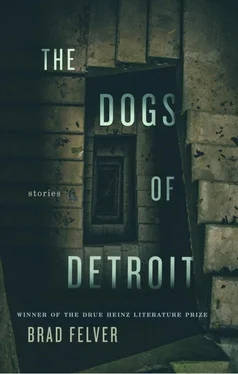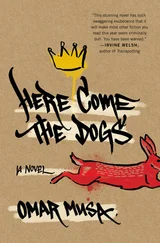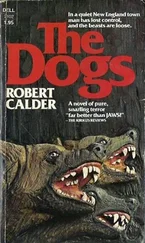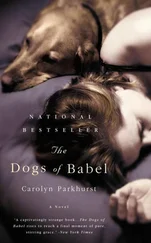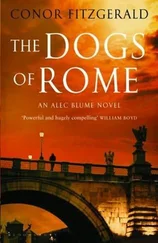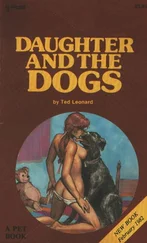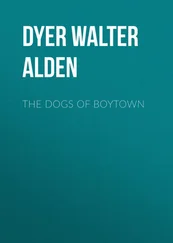I poured us each a rye, and we sat at the kitchen table looking out over the flat white fields. It was something I could do for hours if I had the time. The farm had never stopped being beautiful to me, beautiful in a stern, austere sort of way. Mark preferred hills and golf courses. He resented our childhood in Ohio so much he moved to Indiana, which was dumb enough it made me think I could be a banker too. Every year he flew down to Myrtle Beach with some young tart he was seeing. One year, when we were still in our thirties, he’d convinced me to go along, and it took about twenty minutes to realize I didn’t like golf, beaches, or Southerners.
“Well,” Mark said, “what now? You think Charlie might be interested?”
He was a banker, so this was predictable. The farm was just an asset to him. “We need food and booze for the wake,” I said, and he nodded.
I’d just managed to save a few hundred bucks. If I kept up like this, we might actually finance the old man’s death. We sat there for a while, each drinking our ryes, trying to not breathe too loudly into the silence. We both knew we couldn’t really talk anymore.
Later he said, “We could set up a lease-to-own deal with Charlie. That might make things easier.”
“Until mom dies, you mean.”
He poured himself another drink and set the bottle on his side of the table. “What are you going to do, live here alone? Farm alone and teach at the same time?”
“I’ll figure something out,” I said, already knowing that was a lie.
We had an early dinner of beef barley stew that my mother made, and then she turned in early. “I’m so glad to have you both back in this house,” she said, and kissed each of us on the forehead. That was as close to affection as my mother ever got.
Mark and I had one more drink each, which meant the bottle was about empty. “How the hell do you sleep here?” Mark asked. “It’s so quiet you can’t fart.”
I couldn’t figure out why he had to say things like that. It’s not like he lived in Manhattan. “I like the quiet,” I said.
“Let’s head into civilization and grab a drink.”
We took his car, which turned out to be a Saab, just as expensive but twice as crummy as an Audi. The leather seats were freezing. Why did people like leather? Cold in winter, sticky in summer, pretentious in whatever time was left over, which wasn’t much in Ohio.
We had two options, neither of them good. Friday was karaoke night at the Slow Pour, a low, concrete-blocked place that still let people smoke. The karaoke was still new. I went one time with a few other teachers. Watching a bent-over farmer in Carhartts trying to sing Hank Williams is enough to make you glad you’re surrounded by so much alcohol. I didn’t want to deal with any of that, so I told him the Slow Pour went out of business, and we headed over to the Applebee’s.
Cassidey was leaning over the bar talking to some old guy in a button-up shirt when we walked in. She smiled at me, and I waved awkwardly.
“You came,” she said and set down a couple of cocktail napkins in front of us. “And you brought your brother.”
Mark and I instinctively turned and looked at each other. I guess we did still look alike. I ordered a Pabst, and Mark ordered a Dewar’s and some dark beer that had chocolate and apricots in it.
“They let high school students tend bar now?” Mark asked.
I shrugged. Normally I wouldn’t be caught dead drinking in front of a student, but my father was dead, and my principal already knew it, and I figured this gave me some leeway.
Cassidey came back and set our drinks in front of us. “A PBR for Ralph and a whiskey and Apricot Bock for Ralph’s brother.” She leaned over the bar, and her cleavage poured out of her shirt, which was just a regular t-shirt, but she had cut a long slit vertically down the neckline. Every inch of cut probably represented several dollars in extra tips. “Do you live in town, Ralph’s brother?” she asked. “I don’t think I’ve seen you before.”
“I live in Fort Wayne. Just in town for the funeral.”
I glared at him but didn’t say anything.
“Who died?”
Mark realized he’d been an idiot then, and he looked away. For a few beats we didn’t say anything until I said, “Our dad. Last night.”
“Jesus,” Cassidey said. “Jesus, sorry, Ralph.” She turned away and poured us a couple whiskeys. “On the house,” she said.
She moved away for a while then to help her other customers. She was right that it got crowded on Friday nights. I wondered how many people here were avoiding the Slow Pour like us. That bar had been in town fifty years at least. I realized then that the karaoke machine was probably their sad attempt to get people to stop coming here.
“How long have you been dropping the hammer on her?” Mark asked.
I ignored that. “She wants to go to Ohio State.”
“Good for her. Get out of this place. You could learn from her.”
“I like it here.”
“Look,” he said. “Just let me talk to Charlie. Take his temperature. We play it right, we can squeeze from either side, good cop, bad cop.”
Mark shot both of his whiskeys and then sipped on his beer. We watched the commotion of the place, but mostly I think we both watched Cassidey. I should have been thinking about the farm, but when she squatted to haul up a case of beer, her thong showed, which stole my focus. After a while, as the bar started to thin out, she came back and stood by us.
“I guess that’s why you were absent today, huh?”
I nodded.
“But you came back in because you just had to teach our class. You missed us. Admit it.”
Normally, I would have been annoyed by the way she pivoted back to herself, which all teenagers know how to do, but there was something honest about it. She was the only person who didn’t say my father was a good one or a tough old bird. “I guess we should get going,” I said and fumbled for my wallet, hoping Mark would get to his faster. I don’t know why I thought that. Bankers are good at reaching for your wallet but not their own. Mark got up and went to the bathroom, and I paid with all the cash I had, twenty-four dollars. I handed it to Cassidey and told her to keep it, and our forefingers grazed.
“I’m real sorry about your dad,” she said and made this sad-looking smile. I believed her.
Mark and I didn’t talk on the drive home, but as we were driving down Cherry Street, he saw something that made him say “This town” in a sad voice.
Mark snored through the night. I was exhausted but couldn’t fall asleep. I thought about my father out there in the barn and about how what Mark said about selling was probably right but still felt wrong. That bled into thoughts about Cassidey’s letter and then about her thong and hip bones. Sometimes when we aren’t paying attention, grief and desire and shame mutate and become one big dirty puddle.
I got up at sunrise and went out into the cold and dug my father’s grave. As the blade buried into the frozen sod, I wondered how my ancestors dug graves in winter. Shovels don’t work in soil this frozen. Even a spud bar can’t do much against an Ohio winter. Did they leave the body in the barn until spring thaw? Did they work around it, sometimes for months at a time, until they hardly noticed it anymore?
When I’d finished, I drove the backhoe behind the barn and siphoned out a few gallons of diesel into our tank. To hell with Charlie Garcher, I thought.
We ate breakfast in silence, the three of us. Silence is best when it exists because people are already thinking the same things. The rest of the day would consist of small talk and sad smiles and enough alcohol to keep us polite but not so much that it turned us honest.
Читать дальше
